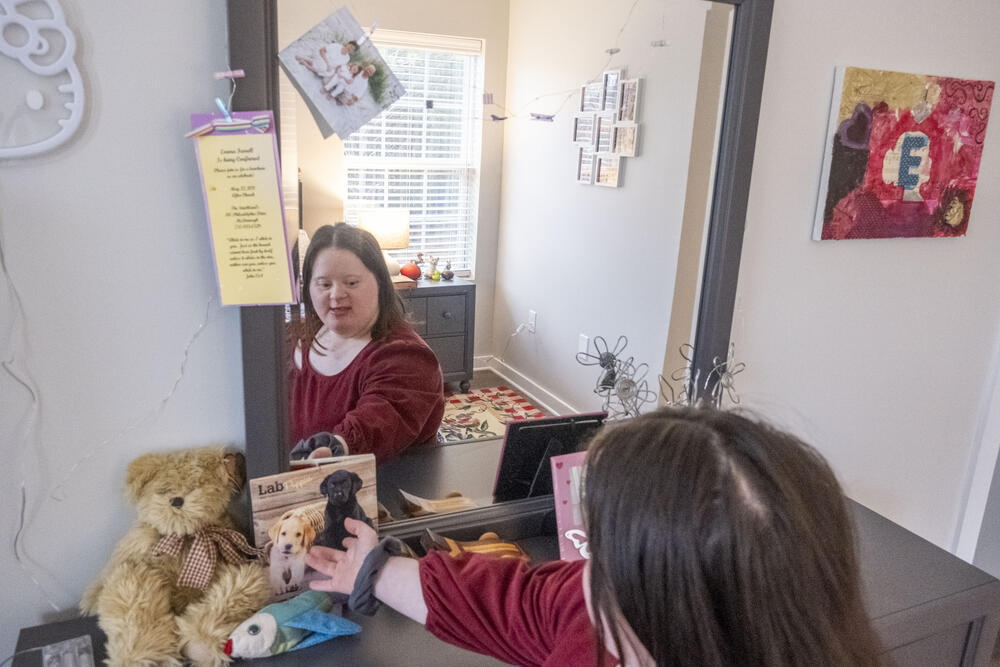
Caption
Emma Farrell gives a room tour at her new apartment in the Soaring Heights community in Conyers, Ga., in January 2025.
Credit: Sofi Gratas/GPB News
LISTEN: Georgia's leading nonprofit supporting people with intellectual and developmental disabilities (IDD) is celebrating the milestone 35th anniversary of the Americans with Disabilities Act (ADA) this month. The landmark law helped shape more inclusive and accessible services in the Atlanta area. GPB’s Ellen Eldridge has more.

Emma Farrell gives a room tour at her new apartment in the Soaring Heights community in Conyers, Ga., in January 2025.
Forty-six years ago, a group of forward-thinking parents of disabled children at Roswell United Methodist Church in Roswell, Ga., created opportunities where there were none for people with intellectual and developmental disabilities.
They bought a few residential homes on streets in the northern Atlanta suburb and began a small nonprofit that has grown and merged with some other groups to become InCommunity, which serves people with intellectual and developmental disabilities throughout the metro Atlanta area, CEO Meg Blackwood said.
Before the Americans with Disabilities Act (ADA) of 1990, the system largely excluded and often institutionalized people who needed such support.
The civil rights law prohibits discrimination against individuals with disabilities in many areas of public life, including jobs, schools, transportation, and many public and private places that are open to the general public.
The purpose of the law is to make sure that people with disabilities have the same rights and opportunities as everyone else, Blackwood said.
The law is the low bar, Blackwood said, but the ADA was very needed at the time to force some changes in behavior.
Even people who are non-verbal and incapable of having a spoken conversation, can communicate in their own ways and express what they want.
"As American citizens, they are entitled to the same rights that all of us have," Blackwood said.
InCommunity now has 45 residences across the metro Atlanta area.
"Three to four disabled individuals live in those homes and we staff them with direct support professionals who are caregivers for them," Blackwood said.
They also identify opportunities, provide training and offer job coaching for disabled individuals who want to work.
Blackwood says about 2,500 individuals and their families connect with the broad range of resources and programs across metro Atlanta, including programs for respite care and family support.